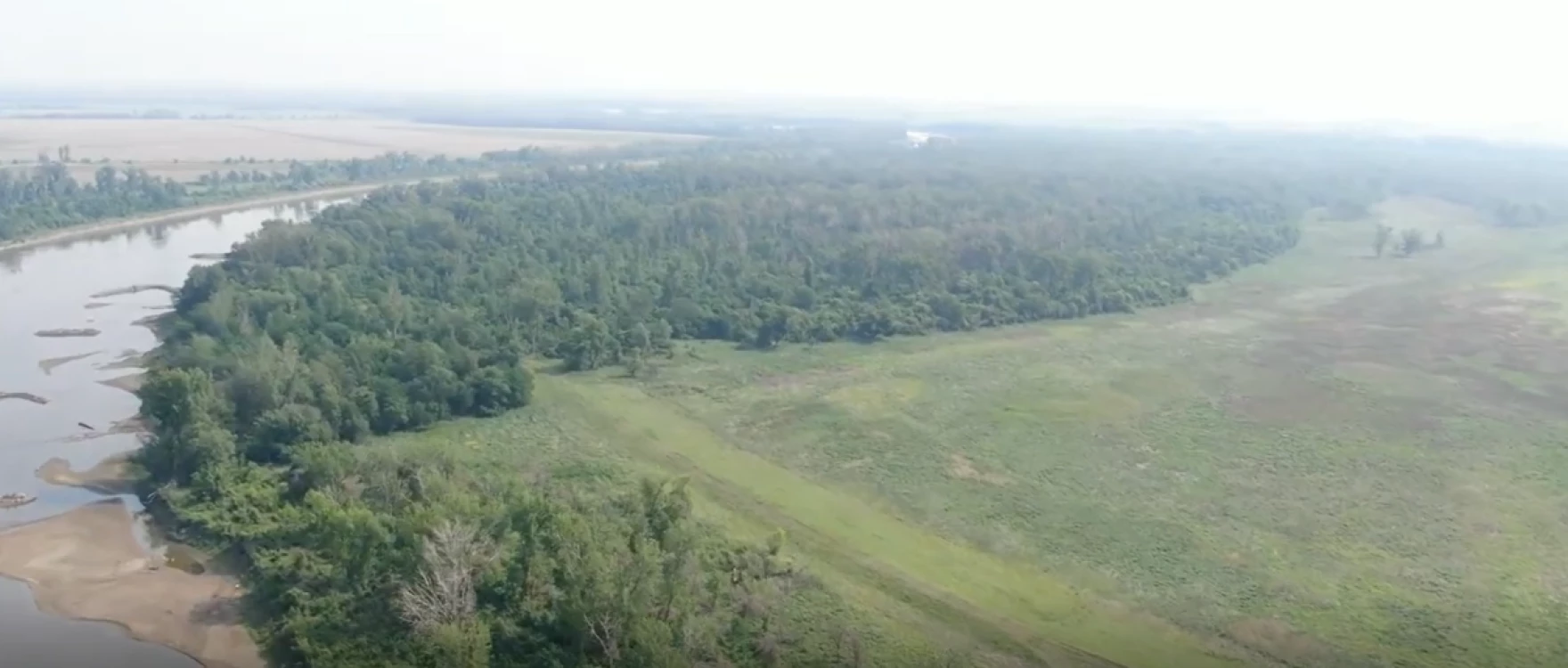
- Details
- By Native News Online Staff
This week, President Joe Biden signed a bill into law that returns 1,600 acres of land back to the Winnebago Tribe of Nebraska. The land was illegally seized by the U.S. Army Corps of Engineers 50 years ago.
The bipartisan Winnebago Land Transfer Act, introduced by U.S. Senator Deb Fischer (R-Neb.) honors the The Treaty of 1865, which established the Winnebago Reservation in northeastern Nebraska along the Missouri River. But westward shifts in the river moved the boundaries of the reservation, and portions of tribal land ended up in Iowa.
In 1970, the U.S. Army Corps of Engineers condemned land on both the Nebraska and Iowa sides of the river for a proposed recreation project. The Corps filed eminent domain proceedings to acquire both tracts of land, which began the tribe’s five decade fight for their territory back.
Winnebago Tribal chairwoman Victoria Kitcheyan called the landback a “truly historic moment” for the tribe.
“Our ancestors, including the late Louis LaRose, fought tirelessly to secure and protect our homelands,” she said. “The Tribal Council is honored to carry on their work.”
The chairwoman told a KTIV reporter that the land will continue to be used by tribal members, including for public hunting.
The land transfer includes a restriction on use’ the tribe is prohibited in using the land for gaming purposes, according to the bill.
“Our bill becoming law corrects a decades-old wrong,” Sen. Fischer said in a statement. “Now, we can finally return this land to the Winnebago Tribe of Nebraska.”
More Stories Like This
50 Years of Self-Determination: How a Landmark Act Empowered Tribal Sovereignty and Transformed Federal-Tribal RelationsNavajo Nation Council Members Attend 2025 Diné Action Plan Winter Gathering
Ute Tribe Files Federal Lawsuit Challenging Colorado Parks legislation
NCAI Resolution Condemns “Alligator Alcatraz”
NABS Documents 134 More Survivor Stories, Expands Digital Archive in 2025
Help us defend tribal sovereignty.
At Native News Online, our mission is rooted in telling the stories that strengthen sovereignty and uplift Indigenous voices — not just at year’s end, but every single day.
Because of your generosity last year, we were able to keep our reporters on the ground in tribal communities, at national gatherings and in the halls of Congress — covering the issues that matter most to Indian Country: sovereignty, culture, education, health and economic opportunity.
That support sustained us through a tough year in 2025. Now, as we look to the year ahead, we need your help right now to ensure warrior journalism remains strong — reporting that defends tribal sovereignty, amplifies Native truth, and holds power accountable.
 The stakes couldn't be higher. Your support keeps Native voices heard, Native stories told and Native sovereignty defended.
The stakes couldn't be higher. Your support keeps Native voices heard, Native stories told and Native sovereignty defended.
Stand with Warrior Journalism today.
Levi Rickert (Potawatomi), Editor & Publisher


